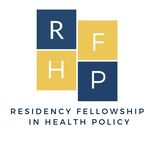You are here: Home >> Education
Mullan Institute Offerings
Reversing patterns of inequity and building social mission back into the health care and health policy professions is the leading health challenge of the 21st century and is a core mission of the Mullan Institute. That mission begins with opportunity, selection, education, and training at the beginning of the health professions life cycle.
This fellowship program is designed to make health workers experts in and advocates for health equity – “health equity warriors”. Annually, 10 U.S. and 10 international fellows, participate in a curriculum that meets 4 times during the year, supplemented by a bi-weekly online program. The Atlantic Fellows for Health Equity is a part of the network of Atlantic Fellows programs. As such, program graduates (called Senior Fellows) will be eligible to participate in programs of the Atlantic Institute after graduation which will include global interest groups, seminars and conferences as well as grants to support on-going collaborative equity focused projects. LEARN MORE...
Office of Minority Health Minority Leaders Development Program
The Office of Minority Health (OMH) Minority Leaders Development Program (MLDP) at the Mullan Institute aims to develop and support future federal leaders in public health and health equity, with a focus on recruiting individuals from groups that have been underrepresented in federal government leadership positions. The program is sponsored by the Department of Health and Human Services (HHS) and led in partnership with the Office of Minority Health. LEARN MORE...
Residency Fellowship in Health Policy

The George Washington University (GW) Residency Fellowship in Health Policy (RFHP) is an intensive health policy elective. It aims to orient residents and fellows to the fast changing world of health policy, increase their knowledge of key health policy issues facing their community and the nation, and prepare them to be effective physician-leaders in system-based practice. The elective has two components: 1) daily classroom-based learning modules and 2) in-person site visits to take place in various sites around Washington, DC. By the end of the fellowship, students will be able to confidently analyze and discuss key aspects of U.S. health policy through participation in intensive, interactive seminars. LEARN MORE...
Other GW Educational Offerings
The goal of the Community Health Primer, designed with GW's Milken Institute School of Public Health Department of Prevention and Community Health, is to teach residents about our local community, give residents a foundation of knowledge in population health, provide experience practicing outpatient medicine in a community setting, and expose residents to new career possibilities. This one-week elective combines didactics, seminars and site visits in community health settings throughout the Washington, DC area. It is offered twice per year. It is a required prerequesite for any resident who hopes to do a clinical elective rotation at a community health center site.
Director: Professor David Popiel, George Washington University Medical Center
_____________________________________________________________________________________________
Director: Professor David Popiel, George Washington University Medical Center
_____________________________________________________________________________________________
The Health Policy Fellowship seeks to cultivate future physician leaders in health policy through the development of academic, clinical and professional skills in emergency medicine and health policy. This two-year fellowship program is open to graduating or recently-graduated physicians from emergency medicine training programs who are committed to lifelong careers in health policy and medicine and who wish to obtain the skills needed to be effective change agents in the health care system.
Directors: Aisha Liferidge, Natalie Kirlichin
Directors: Aisha Liferidge, Natalie Kirlichin
Health Workforce Policy
This course introduces students to the structure and dynamics of the changing health care workforce. It focuses on select health care professions and then reviews some of the major political and economic conflicts that underlie currently health workforce policies, including: the relative roles of the Federal and State governments; how workforce composition impacts utilization, legislative battles over scope of practice; how payment policies affect practice; the use of task shifting to control costs; the international recruitment of heath workers; the role of labor unions; and impact of patient empowerment and health IT on physician roles.
Professor: Patricia Pittman, Department of Health Policy and Management, Milken Institute School of Public Health
Professor: Patricia Pittman, Department of Health Policy and Management, Milken Institute School of Public Health
Managed by the GW School of Business, the Online Healthcare MBA program is specifically designed for experienced healthcare professionals looking to gain business skills needed to become health services managers, administrators, and executives. Applicants with backgrounds in healthcare are particularly well-suited to pursue this program. Students in the program are healthcare professionals seeking success in the boardroom, an entrepreneurial venture, policy, and come from both the private and non-profit sectors. The GW Healthcare MBA recognizes this diversity and includes a curriculum that is practical for a broad range of careers.
These online Webinars are focused on healthcare related topics were created by the GW School of Business for their HealthCare MBA program.
The Underserved Medicine & Public Health (UMPH) Concentration is designed for Internal Medicine residents interested in careers in public health and serving the underserved. This two-year longitudinal program includes:
Co-Director: Professor David Popiel, George Washington University Medical Center
- caring for patients at a local community health center for a second continuity clinic,
- evening seminars on public health topics, and
- designing and performing a public health practicum project on a topic of interest to you.
Co-Director: Professor David Popiel, George Washington University Medical Center

